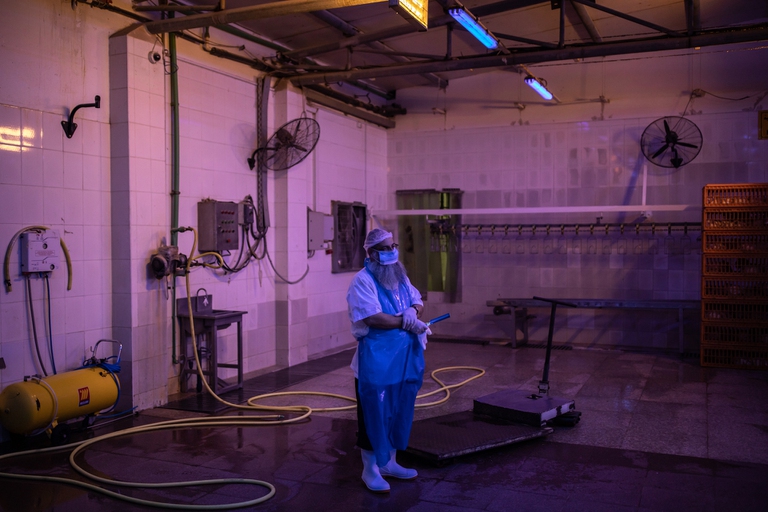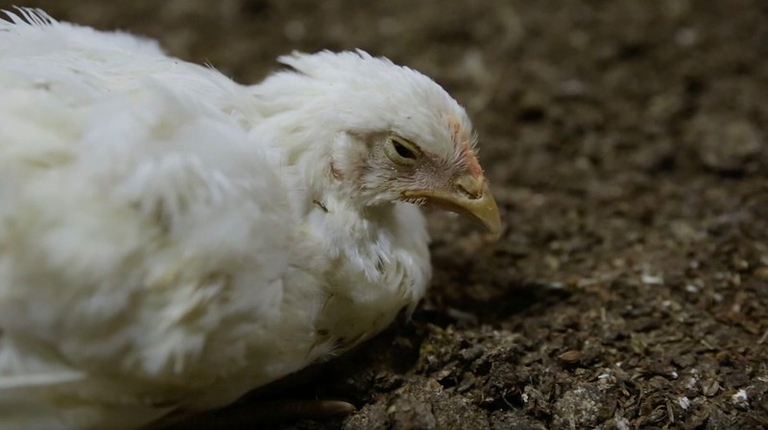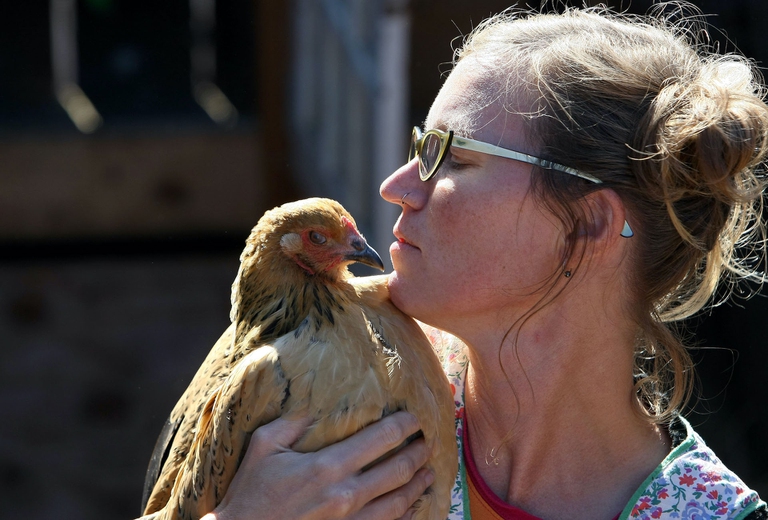https://www.lifegate.it/stop-allevamento-polli-a-rapido-accrescimento
- |
- Animal Equality is calling for a ban on fast-growing chicken farming across Europe.
- A new investigation on an Italian farm has shown the suffering these animals are subjected to on a daily basis.
Animal Equality asks to stop foreverfast growing chicken breeding in Italy and the European Union.The objective is to put an end to the exploitation of a genetically selected commercial hybrid to produce more with reduced times and costs, to the advantage of industry profits but to the detriment of animal welfare.

The new investigation by Animal Equality
Animal Equality's investigative work has already highlighted the conditions of extreme suffering in which fast-growing chickens are forced to live, but a new investigation allows us to look even more closely at what happens to these animals within a intensive farming.The images collected by the investigative team show the systematic exploitation of over 80 thousand chickens rapidly growing within a large one northern Italian breeding, symbol of Made in Italy.In the images we can see how the animals, in most cases, are incapable of assuming a natural resting position and walking adequately, often remaining collapsed on the ground because they are unable to support their own weight.

The suffering faced by fast-growing chickens
Rapidly growing chickens are characterized by an accelerated and excessive increase in their musculature which it causes severe damage to the skeleton of animals, as genetically it remains that of a growing chick and this condemns chickens to easy fractures and injuries to the limbs.Many chickens thus end up often remaining in what is defined position of the “splay leg”, with splayed limbs that make any natural movement impossible for them.
Unable to maintain an upright position, rapidly growing chickens also find it difficult to reach drinkers and feeders and this further worsens their state of health, in some cases causing premature death because of the hardships.Animal Equality investigators have in fact found many carcasses of abandoned animals on the litter and near the feeders, some even in an advanced state of decomposition among still living chickens:this is a finding that denotes serious negligence on the part of the company's operators, and which increases the bacteriological risk in the structure.
Faced with these findings, the deteriorating situation found inside the examined warehouses poses serious problems of bacteriological risk due to incorrect hygienic-sanitary conditions.To aggravate the conditions, through sampling of the litter a high level of ammonia, responsible for skin lacerations and lack of plumage on animals, as well as possible negative consequences for the respiratory health of chickens.
From the number of deceased animals within the farm and the piles of bodies found on the litter, the mortality rate within the facility is very high:this is also demonstrated by the bodies of many animals of varying ages found inside the two cold rooms, an element which in fact suggests a high mortality rate in every phase of growth within the farm.

An appeal to the Ministry of Health
Given the results that emerged from the investigations carried out within chicken farms, Animal Equality launched a petition addressed to the Minister for Agricultural Policies and the Minister of Health to ask them to promote in Italy the abandonment of the breeding of fast-growing chicken breeds and to support their ban at European level.Animal Equality has also decided to file a complaint at the European Commission against all member states that breed fast-growing chickens.
It is in fact possible to breed this type of animal throughout the entire territory of the European Union but, as also highlighted by the European Food Safety Authority (EFSA), it is not possible to guarantee them a life free of suffering and pain, thus making their well-being within any farm is impossible - as is instead required by the dedicated EU legislation which requires compliance with minimum standards of animal welfare.Finally, the current breeding of fast-growing chickens does not even comply with what is declared in the strategy Farm to fork, which recognizes animal welfare as an essential priority of the European Union.
